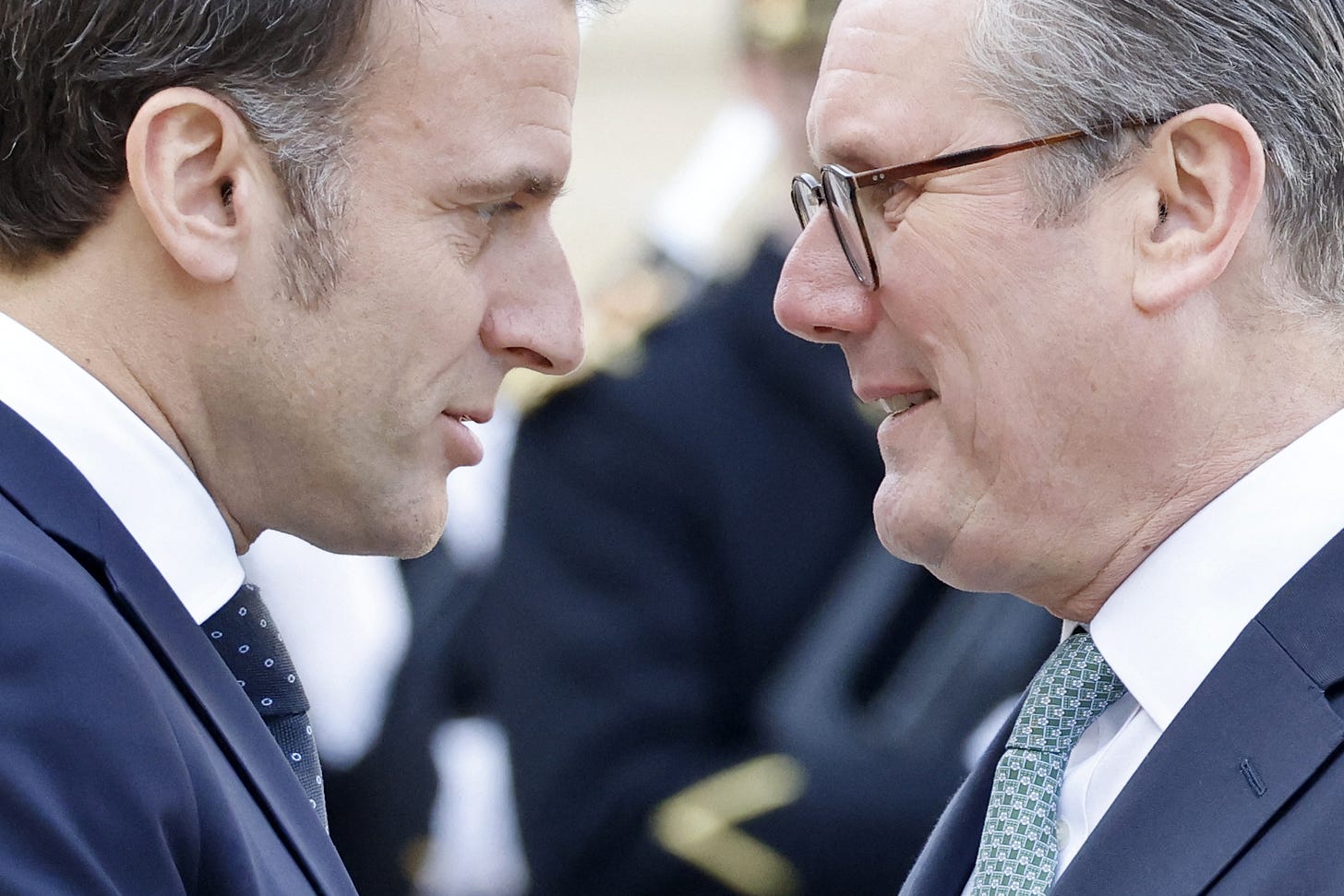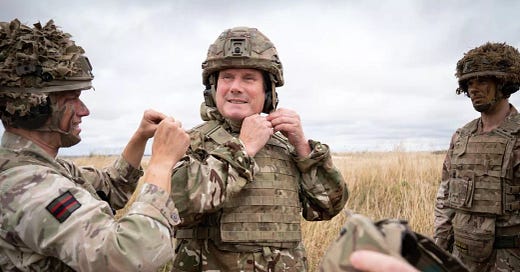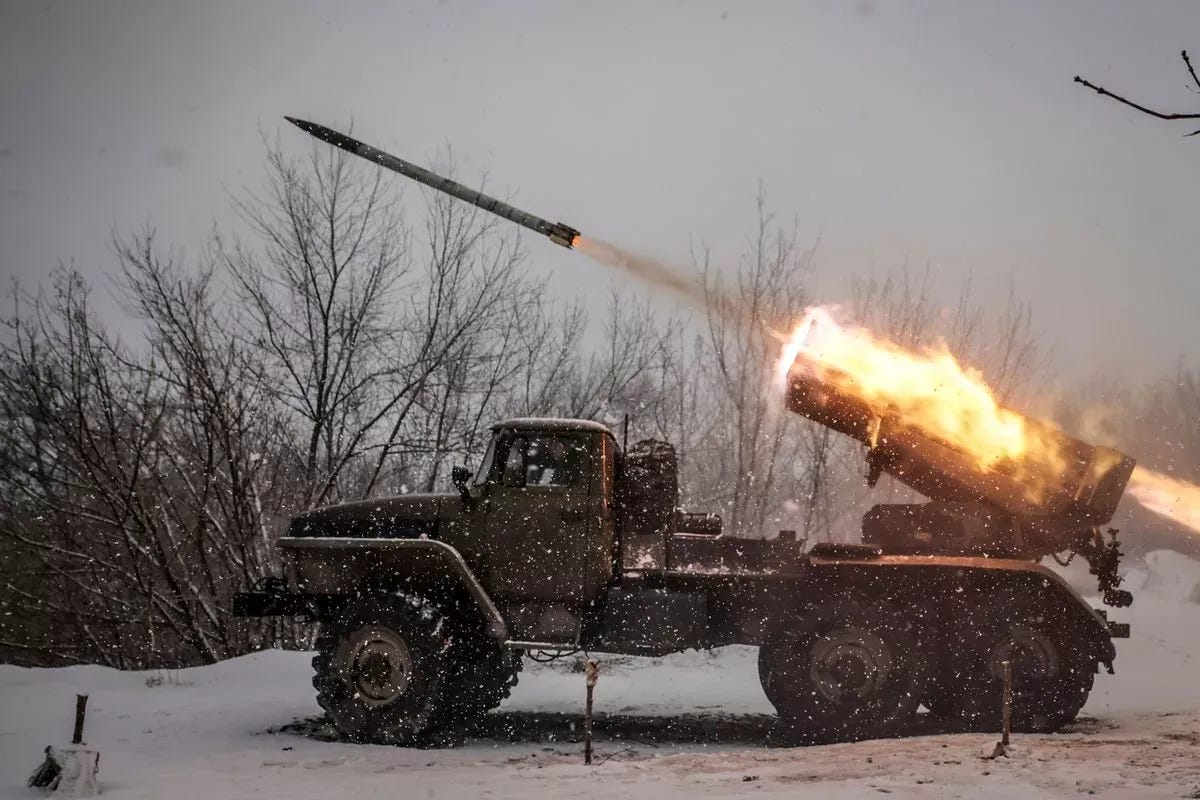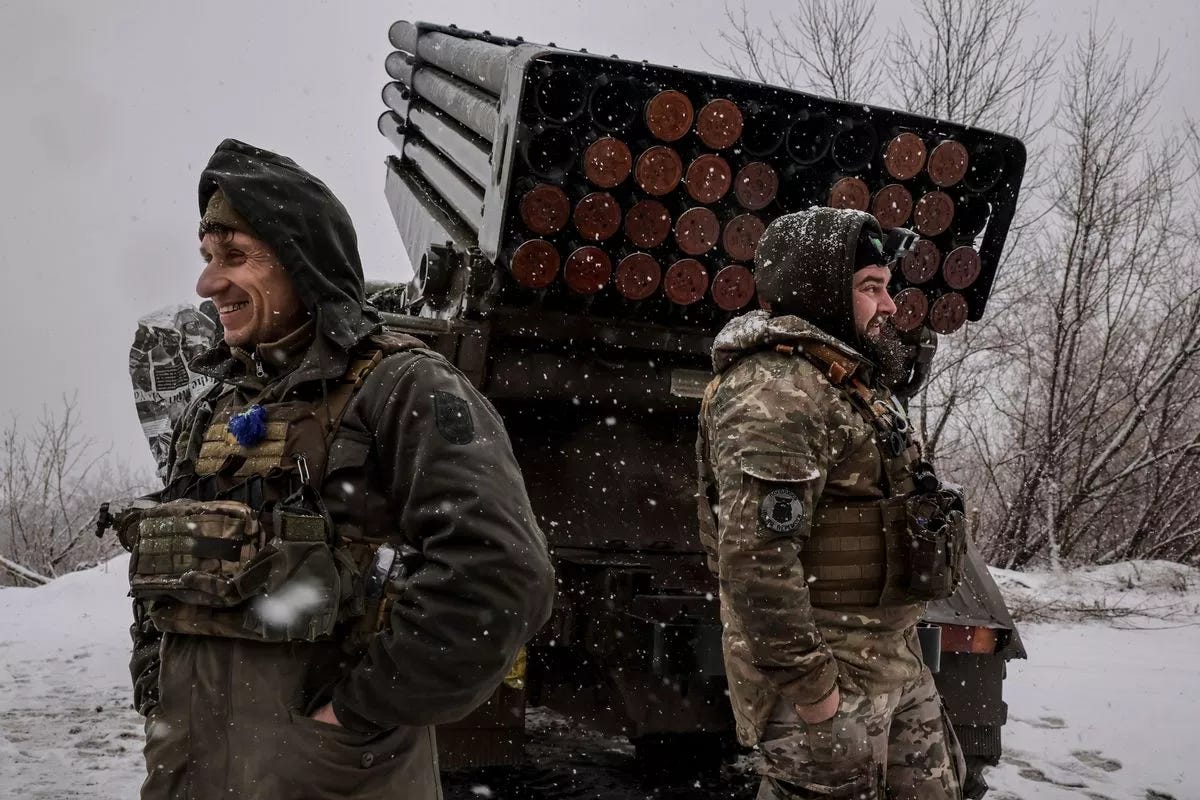Starmer's Ukraine 'boots on the ground' move is strategically brilliant – for now
Keir Starmer’s Ukraine ‘peacekeeper troops boots on ground’ plan could be a brilliant strategical move before Trump talks - but he may have to make it work and experts doubt it will
Hello and welcome to Hostile World with Chris Hughes, a weekly newsletter about the world of defence and geopolitics. You can subscribe here and follow me on Twitter @defencechris. Thank you!
Prime Minister Keir Starmer’s ‘peacekeeping boots on the ground’ in Ukraine is a quick and possibly strategically brilliant move.
It grabs the initiative following US demands for Europe, including the UK, to do more to protect itself and puts him in a better position to negotiate with the Trump administration. Britain is caught between the US and Europe and is toeing a line between putting out fires from Trump’s bellicose outbursts and trying to remain a force alongside Europe. It has to balance these extremes without creating too many schisms between it and countries such as France and Germany.

For now though effective diplomacy, this is just words but it is very possible it will have to happen. How it will be done will be difficult, with UK defence under immense pressure to boost spending to 2.5% and, let’s face it, much more in the coming years. Russia’s Foreign Minister Sergei Lavrov has thrown petrol on the fire, claiming Europe will not be involved in peace negotiations but we will have to park that for now.
The issue of British troops in Ukraine on a peace keeping mission is the crucial development and Lavrov is trying to leverage the talks before they begin. Former head of the Army Lord Dannatt has already stated that it cannot be done currently as it would require a rotation from among between 30,000 and 40,000 troops. At the peak of our military contribution to the war in Afghanistan roughly 10,000 British troops were there on a six month rotation.
This would mean our three services would be extremely stretched with a commitment to Ukraine - and China is a major threat in the coming five years. Time is running out for Ukraine which has by all appearances been brutally sidelined by its greatest financial and military ally, the US in talks with Russia. Yet, as Sir Keir says, we are facing a “generational challenge” which has put Ukraine on the “frontline” for both Britain and the rest of Europe.
The hope is that sidelining Ukraine in negotiations is part of Trump’s bluster in the countdown to proper peace talks with Russia, although this hope is fading as Trump repeatedly refuses to criticise President Vladimir Putin. Trump appears to have given away concessions to Putin before any peace talks and we have to wonder what else he may concede on.
But Britain has to be involved in any plugging of the Russia threat, which however the peace talks go, will remain, with all the added complications of agreement-breaking, espionage and other aspects of asymmetric warfare Putin will unleash on the frontline. And one of the biggest problems will be under what banner the UK force would be operating under - NATO, the EU or a new organisation which perhaps does not include the US and would have to be alongside European partners. A new alliance strengthening links to Europe might be better for the UK.
Thank you
I hope you’ve enjoyed my latest newsletter. If you have been forwarded this email and would like to sign up, you can do that right here.
Let me know your thoughts in the comments and see you next week,
Chris







With respect chris. Russia has said peace keeping troops will have to have a UN security council mandate. Coming from a permanent security council member. But troops before this will be seen as a hostile target. They insist on no missiles on their borders. No bases. The prime ministers plan he may mean well but are on course for a collapse of any lasting peace agreement. 5000 missile goes against the key agreement. Ukraine refused in Turkey a agreement which is still on offer but no troops no missiles are a key demand.